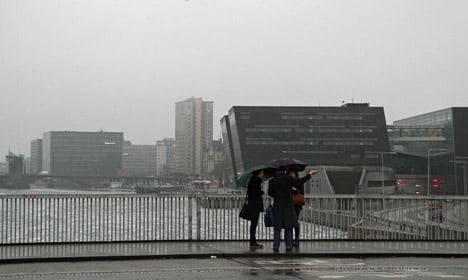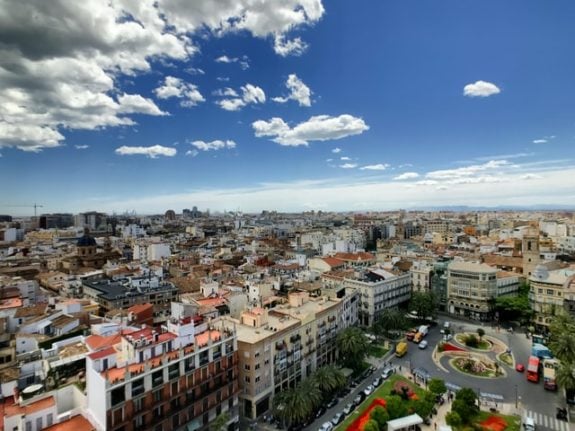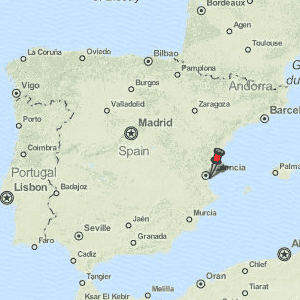 Melanie Haynes is originally from the UK and has lived in Copenhagen for eight years. She writes about life in Copenhagen on her blog Dejlige Days and after experiencing relocation to Copenhagen and Berlin, she runs a settling-in service aimed at helping expats called Dejlige Days Welcome. Her ebook, Dejlige Days: A Guide to relocation, will be published in February.
Melanie Haynes is originally from the UK and has lived in Copenhagen for eight years. She writes about life in Copenhagen on her blog Dejlige Days and after experiencing relocation to Copenhagen and Berlin, she runs a settling-in service aimed at helping expats called Dejlige Days Welcome. Her ebook, Dejlige Days: A Guide to relocation, will be published in February.EXPAT
How to manage the expectations of expat life
Relocation expert Melanie Haynes gives readers tips on how to deal with the two areas that give new arrivals the biggest headaches.
Published: 12 February 2016 08:30 CET

Life in a new country isn't always filled with sunshine. Photo: Colourbox
Managing expectations is the name of the game for successful relocation. It is very easy to fall into the trap of constant comparisons and conversions to everything 'back home'. There are two key areas that people struggle with that can cause major problems in relocating: space and cost. Both of these require a change of mindset and a big dose of reality, something that is often resisted by newer expats.
Firstly, space. For many people moving from the UK or the US one significant issue is coming to terms with a smaller living space, especially in regard to bathrooms. A lot of people in the UK will be lucky enough to have at least two bathrooms in their home and understandably take this for granted. They will have a shower and a bath, tons of storage space for all those tubes of cosmetics and face creams we seem to accumulate.
Unless you are looking at a modern apartment in Copenhagen your bathroom is most likely to consist of a wet room less than two square metres including a sink, a small cupboard and the toilet – all neatly and cleverly fitted into the compact space. The shock on the faces of guests from the States when they see the bathroom spaces in Danish apartments is always a sight to behold.
The cost of living in Denmark is the next big issue. If I had a krone for every time I hear how expensive things are here I would be a very wealthy woman. There are even people who claim that due to the expensive nature of goods here that they simply ship everything they need from cheaper countries and never spend even a øre in Danish stores if they can help it (not a great way to support your local economy).
But with a change of expectations and behaviour you realise that a lot of what you spent your money on at home was totally unnecessary, throwaway junk that you simply didn't need. I am ashamed to admit that I would easily spend hundreds of pounds on a monthly basis on cheap throwaway fashion when I lived in the UK.
I would fill my aforementioned bathroom cabinets with the latest wonder anti-ageing cream and forget about it the next week. Being faced with a more expensive price tag for non essential items has helped me pick and choose a lot more carefully and actually use and wear all the things I own.
I have stopped chasing the latest thing for that temporary emotional high and changed my values about consumption. I buy more expensive beauty products but use them until the jar is empty – something I never did with all the cheap ones in the UK. We meal plan and eat all we buy (as much as possible), we don't fill our apartment with stuff we don't need or enjoy. We don't have a TV in every room. And we don't feel we are missing out.
It is very easy to get caught up in comparing prices between your home country and your new country and coming to the conclusion that the latter is very expensive. Budgeting is important, but so is realism. Things cost what they cost, so unless you can find an alternative source through friends and family or the internet, you need to decide if you want something bad enough to pay the price.
I hear people say that a washing machine would be half the price 'back home', true as this may be you can't buy it there and ship it over so you need to find the best price here. That is an essential element of dealing with the price of things here – shopping around to find the best deal – whether that is on appliances or a litre of milk.
Quite a while ago I started doing my smaller grocery purchases (I use Nemlig for the convenience for the majority) in budget supermarkets like Netto, Aldi and Lidl and our bank balance is showing the difference.
I was recently listening to a podcast with blogger Jen Gale who advocates a healthy approach to consumption and a more ‘make do and mend’ lifestyle and she put it perfectly – once you replace ‘I need’ with ‘I want’ you can start to assess what is really important and essential to live a contented lifestyle and not one based on consumption.
It was a change that living here forced me make and it made life a lot easier with less resentment.
 Melanie Haynes is originally from the UK and has lived in Copenhagen for eight years. She writes about life in Copenhagen on her blog Dejlige Days and after experiencing relocation to Copenhagen and Berlin, she runs a settling-in service aimed at helping expats called Dejlige Days Welcome. Her ebook, Dejlige Days: A Guide to relocation, will be published in February.
Melanie Haynes is originally from the UK and has lived in Copenhagen for eight years. She writes about life in Copenhagen on her blog Dejlige Days and after experiencing relocation to Copenhagen and Berlin, she runs a settling-in service aimed at helping expats called Dejlige Days Welcome. Her ebook, Dejlige Days: A Guide to relocation, will be published in February.
Url copied to clipboard!






 Please whitelist us to continue reading.
Please whitelist us to continue reading.
Member comments